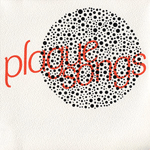|
|
 |
Dusted Reviews
Artist: V/A Album: Plague Songs Label: 4AD Review date: Nov. 21, 2006 |

|
|
|
 |
You can be humbly reverent. Eerily mystical. Rageful. Paranoid. An aloof smartass. You can re-write it in your own language or exploit its dark, symbolic drama. Indeed, there are many ways of regarding the Bible, all well known, none particularly surprising.
Plague Songs is a sequentially ordered set of takes on the Ten Plagues Of Egypt, the woes adventurously conceived by God in the Book of Exodus, Chapters 7-12. It’s part of a large-scale performance art project that, this last September, reenacted the ancient tale in a British seaside community. In that setting, these songs were performed by the local talent. They were written expressly for this project, in order to be covered. But until the show receives its theatrical release in ’07, this collection of the original versions is, for our purposes, a bigger deal.
All of these artists qualify as big shots, some bigger than others. Starting with claustrophobic UK hip hop of Klashnekoff and ending with the woozy-jetsetter shtick of Rufus Wainright, Plague Songs has more variety than most radio stations. It’s sequenced oddly enough to remain the center of conversation. And yet, in a number of important respects, it dissatisfies.
For every track that sounds as thought-out and literate as the circumstances demand, there’s at least one that sounds rushed, cutesy and uninspired, like a cheeky high-concept book report barely finished by deadline. Coming as it does from pop’s most amusingly bookish songwriter on the relatable side of Momus, Stephin Merritt’s “The Meaning of Lice,” is the biggest letdown, strict Merritt-by-numbers, a kiss-off note with a really obvious rhyme scheme. Despite some witty lyrics, King Creosote’s “Relate the Tale” rests too heavily on the sort of soft-spoken reverse-profundity that’s made “indie rock” such a pejorative of late, as though it’s afraid to be as creepy as it could. And whether he’s singing about his own celebrity or death itself, Wainwright always sounds about the same, tired and self-involved.
Even the better tunes here seldom abandon their makers’ comfort zones (exempting Scott Walker’s chilling a cappella incantation “Darkness,” as Walker doesn’t seem to have a comfort zone anymore). The deepest sounds are arrived at via understatement, whether the chilling negative-space of Laurie Anderson’s “The Fifth Plague,” the Tiger Lillies’ uncharacteristically deferential “Hailstones” or the Robert Wyatt vocal buried deep under a lush Brian Eno mix (“Flies”).
The Plague of Darkness inspires the disc’s creepiest track, the Plague of Flies its most soothing. That sort of irony does count for something.
Although the highlights of Plague Songs are powerful, its disappointments are obtrusive, and its structural inconsistencies are more frustrating than exciting. Of the Good Book itself, I can't say a whole lot more.
By Emerson Dameron
|







